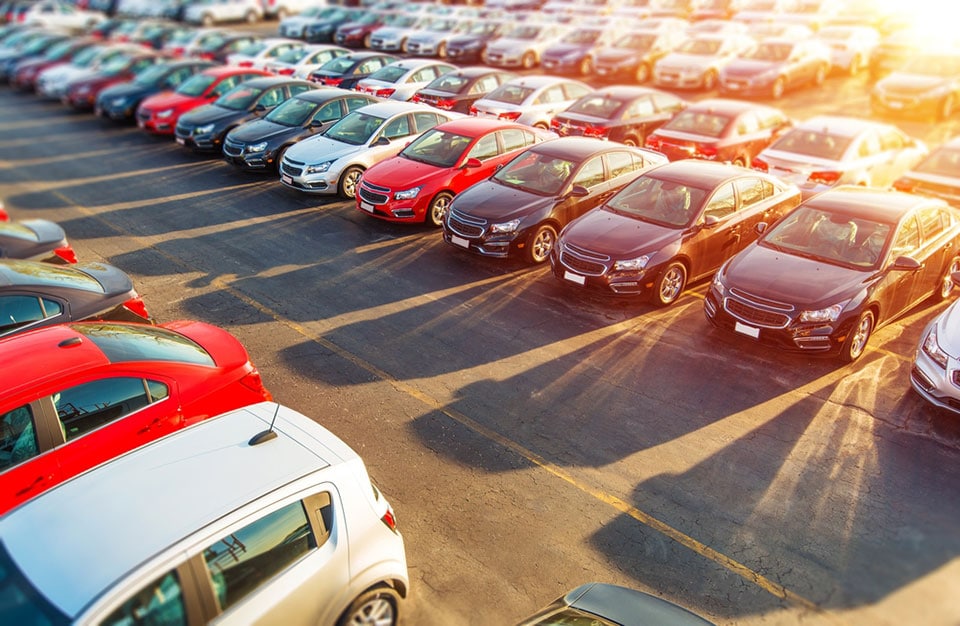Autonomous and electric vehicles are coming. But to finance their development and win automakers favor when the next-generation vehicles go to market, they need to nurture brand loyalty now.
By Kelly Shermach
Not so simple, it seems. The shift away from car ownership with the success of industry disruptors like Uber, Lyft and car-sharing companies such as Zipcar makes present-day sales and forecasting a challenge. How can manufacturers accurately anticipate demands of the future while navigating trends today (read: SUV and truck takeover post recession)?
Contain creativity
"Especially in certain parts of the U.S., it isn't assumed any longer that someone will own a car," says Michelle Yaiser, principal analyst on Forrester's Customer Experience Index. And "with Uber and Lyft and Zip [in the marketplace], loyalty becomes more important."
Nameplates don't hold the cache they used to. Thus, optimized model selection and production will maximize the monies for development of autonomous and electric vehicles.
"To some extent, the auto industry hasn't kept up with customer expectations," she says. Brands have been slow to develop products, services and interactions that reflect marketplace changes. As a result, if they haven't seen sales volume decrease, they have seen net revenues drop.
Faced with too many models in a line, too many vehicles on lots, manufacturers and dealers have offered incentives to prompt purchases primarily—loyalty, too (fingers crossed).
What trade-ins can tell
Edmunds looked at nearly 14 million vehicle trade-ins (not including lease returns) from 2007 to 2017 to determine what drives customer loyalty at the segment and brand levels. Some findings:
- As soon as the end of 2018, passenger car loyalty could drop as low as that for SUVs during the recession. Then, the U.S. government paid incentives for SUV trade-ins on the purchase of smaller, fuel-efficient vehicles.
- SUVs have the highest loyalty by segment—a title formerly held by trucks. Seventy-five percent of SUV owners traded in for a new SUV; 74% of truck owners chose a new truck; and 57% of car owners bought another car.
- SUVs, with models aplenty, picked up truck defectors. They don't have as many truck models as SUV models to consider.
- In 2017, passenger cars accounted for only 36% of new vehicles sold. Only a third of vehicles traded in went toward the purchase of a car.
- Japanese manufacturers win in marketing car reliability and cost-effectiveness. In 2017, 83% of consumers who traded in a Japanese car bought a Japanese brand. Only 53% of American auto trade-ins went toward new American vehicles.
- In fact, Toyota and Honda have the highest model-to-model loyalty rates in several segments.
- Most improved: Subaru moved from 45% loyalty in 2007 to 61% in 2017. And Mazda nearly doubled its loyalty over the same time period to achieve 44% in 2017.
Add service, subscriptions to engage
Brand loyalty delights manufacturers, but dealers need more. Because today's vehicles need less servicing, dealers have fewer opportunities for incremental revenue and nurtured impressions.
Manufacturers have helped by limited the mechanics who have access to the latest software required to repair and maintain their models. Lincoln rolled out concierge services in which a vehicle is picked up for and dropped off after servicing at the dealership. The FordPass app extends features for "members" who gain additional interactions with the Ford brand, not just their vehicles.
In general, Forrester's Yaiser says the auto industry can achieve efficiencies and improve customer experiences. Blockchains, for example, can support better supply chain operations. And seemingly strange brand extensions can work. Just look at Amazon and Whole Foods.
Chariot, the van share commuter solution acquired by Ford Smart Mobility, supplements the city bus system. It assists riders in setting up transit pools with convenient pickup and drop-off points. In Germany, Yaiser says, Audi is running a small beta test in which a collective of consumers can buy a single vehicle. Apps for the program facilitate the equal sharing of expenses and scheduling of vehicle use.
"Rather than trying to force a square peg in a round hole, let's make a round peg," Yaiser says.
Kelly Shermach is a reporter for The Wise Marketer.


